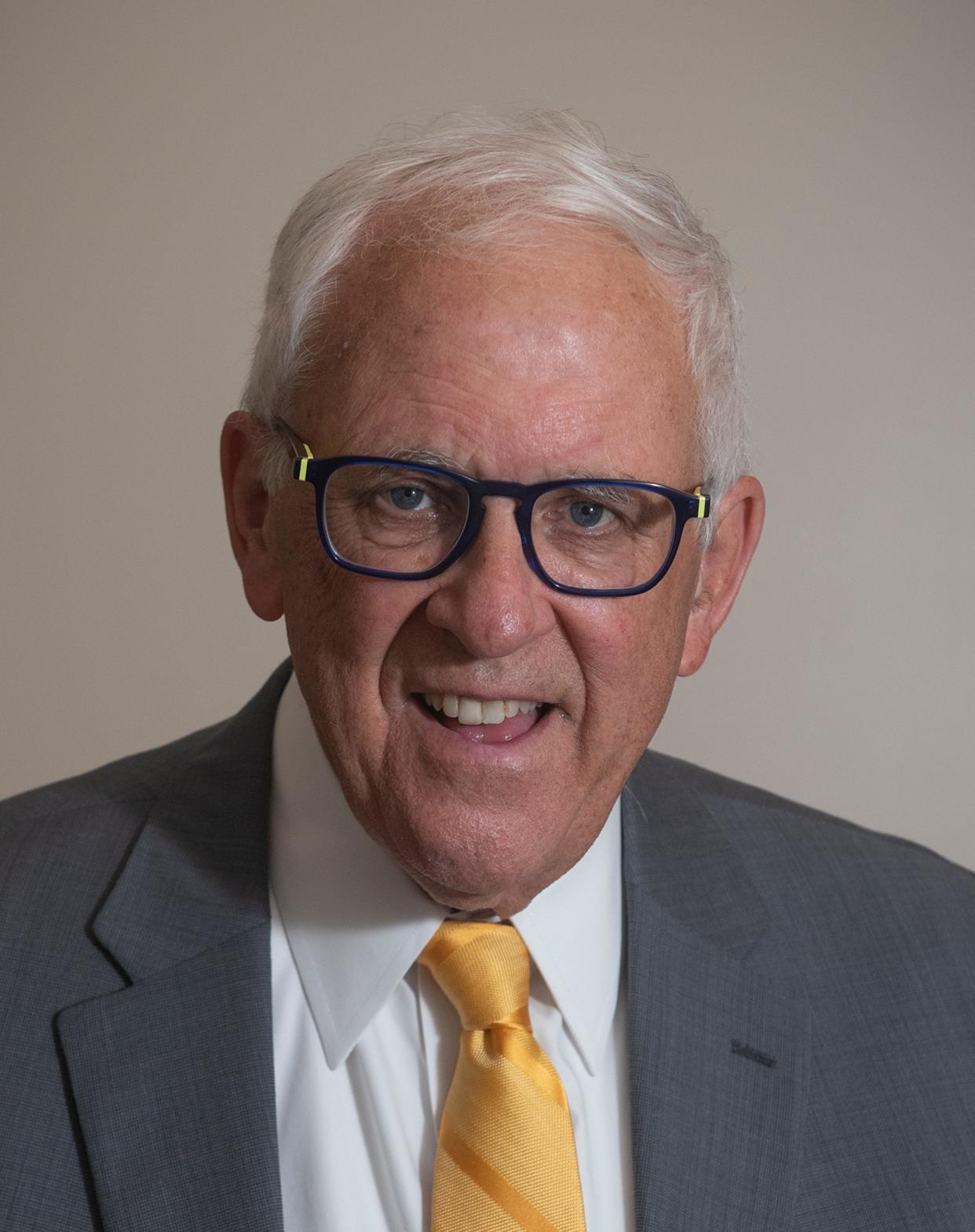Expert’s predictions at Hiram: Armistice, EU membership for Ukraine

- Oops!Something went wrong.Please try again later.
- Oops!Something went wrong.Please try again later.
An armistice without victory and eventual Ukrainian membership in the European Union is the likely outcome of the Russian-Ukraine War if the United States and its allies continue to support Ukraine.
That's the view of a leading expert on Russian history who spoke at the Hiram College Garfield Center for Public Leadership forum recently.
The speaker, Stephen Kotkin, is the Kleinheinz Senior Fellow at the Hoover Institution and a senior fellow at the Freeman Spogli Institute for International Studies at Stanford University. He is about to release with his publisher, Penguin, the third volume of his biography of Joseph Stalin, who led the Soviet Union through World War II into great power status.
Kotkin, appearing at Hiram College via Zoom, termed Russia’s invasion of Ukraine as criminal. He favors American support of Ukraine and says the Biden Administration’s effort to keep the war from expanding into a wider war is the correct goal.
Kotkin does not discount the possibility that Vladimir Putin may eventually resort to the use of small, strategic nuclear weapons and pointed to Putin’s announcement that he is placing such weapons in Belarus, a small country tied to Russia that shares a long border with Ukraine.
“Putin wants to destroy Ukraine and its culture,” he said, noting Russians are bombing the country’s institutions including Ukrainian museums. Russians are then emptying them of their collections and taking them to Russia.
Putin is an autocrat who controls the media and oppresses opposition. His pro-Russian nationalistic message appeals to enough Russians, so he faces no strong opposition.
“He does not care how many Russians die in Ukraine because he always has more replacements,” Kotkin said.
Kotkin added that he admires Ukraine’s resolve in fighting the Russian invasion of their country, which, he said, began in 2014 shortly after the Olympics when Russian forces invaded and annexed the Crimean Peninsula.
Kotkin talks about winning a war as being different than winning the peace. Ukraine, he said, cannot defeat Russia and may not realize its goal of recapturing every bit of its territory seized by Russia, but its determination may eventually result in a ceasefire and armistice like the one between North and South Korea. That, he said, would provide Ukraine the opportunity for eventual membership in the European Union and its evolution into a nation that respects the rule of law and has an accountable government in which majority rules.
South Korea, he said by way of example, did not conquer North Korea, and win the war, but it has become one of the most successful countries in the world.
Likening Putin’s system of government as one that exists off the wealth inherent in the nation without creating new wealth, Kotkin described the strategy of invading Ukraine as a disaster for Russia. The invasion, he said, has re-energized and enlarged NATO, the American-European alliance and isolated Russia, nudging it into a dependent relationship with China, once the junior partner, but now the senior partner in that two-nation friendship. He said Russia, on its current path, may become a larger version of North Korea, dependent on China, but independent enough to do mischief in the world.
The United States has discovered that a friendly, united Europe is one of its best defenses against an unfriendly Russia and China, he said. Japan and Australia, two countries, in which the rule of law also prevails, are supportive of the American and European desires to contain China. He added that Vietnam, which defeated the United States in 1974, has also become friendlier with America because it worries about Chinese domination.
Kotkin termed Russia as a civilization that does not want to become part of the West. Of modern western nations, one with similarities is France. He described France as a nation of centralized government with a large bureaucracy that suffered a bloody revolution like Russia’s followed by a dictatorial government that threatened its European neighbors. Nevertheless, France evolved into a nation in which the rule of law is respected and majority rules. France no longer threatens its neighbors. That, Kotkin, said would be the best outcome for Russia.
Russia on its present course may eventually dissolve, Kotkin said. Then, he said, China and Japan would compete to control huge swaths of Siberia, the Asian portion of Russia.
The Garfield Center for Public Leadership, with support from alumni, sponsors semi-annual forums, some of them utilizing Zoom. Its director is James Thompson, professor of political science.
David E. Dix is a retired publisher of the Record-Courier.
This article originally appeared on Akron Beacon Journal: Speaking to Hiram crowd, expert describes how Ukraine war might end

